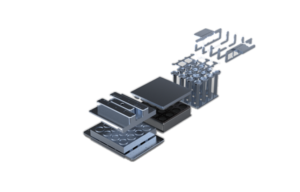
Device as a Service (DaaS) is a business model that is revolutionizing the way companies manage their IT infrastructure. Instead of the traditional purchase of devices such as laptops, desktops, or tablets, DaaS offers them as a subscription service. This allows organizations to utilize the latest technologies by paying a fixed monthly fee, significantly simplifying hardware management and reducing upfront costs.
One of the leaders offering DaaS is Dell. The Dell Device as a Service combines state-of-the-art hardware, software, and advanced technical support. A key aspect of this model is flexibility, as clients can tailor the offering to meet their specific needs. Dell DaaS provides cutting-edge devices, regular hardware updates, and proactive monitoring, minimizing the risk of downtime. Organizations gain access not only to reliable hardware but also to comprehensive support, enabling them to focus on their core business objectives.
HP is also heavily investing in its DaaS offerings, providing solutions that help companies efficiently manage their IT infrastructure. HP Device as a Service stands out by leveraging advanced analytics powered by artificial intelligence, which optimizes device usage and identifies potential issues before they impact business operations. HP offers a comprehensive approach, combining device delivery, technical support, as well as recycling and device replacement services. This significantly reduces costs and simplifies IT asset management in an ever-changing business environment.A critical advantage of the DaaS model is its scalability. Both Dell and HP allow companies to adjust the number of devices according to their current needs, which is particularly important in times of economic uncertainty. Businesses can quickly scale up or down based on workforce size or new projects, without incurring additional capital expenses.
DaaS is also an excellent solution for companies aiming to be more environmentally friendly. Both Dell and HP provide recycling and secure disposal services for old equipment, helping organizations reduce their carbon footprint and meet corporate social responsibility requirements. With regular hardware refresh cycles, businesses can ensure they are using energy-efficient devices that meet the latest standards. Security is another area where the Device as a Service model offers significant benefits. Both Dell and HP deliver devices equipped with built-in security features, such as data encryption and protection against cyber threats. Additionally, regular updates and technical support ensure that systems remain resilient to emerging types of attacks. In a world where cybersecurity is becoming a critical element of every business, these features are invaluable.
The future of the DaaS model looks promising, particularly in the context of the growing importance of remote and hybrid work. Companies are increasingly opting for flexible models that support their employees regardless of their location. Dell and HP play a leading role in this space, offering solutions that enable organizations to provide reliable work tools even in the most distributed teams. Device as a Service is the future of IT management, already transforming the way businesses operate. Both Dell and HP DaaS offer solutions that allow companies to achieve significant cost savings, improve efficiency, and better adapt to dynamic changes in the business environment. In an era of rapid technological advancements and growing customer expectations, DaaS is becoming the foundation of modern organizations striving to stay ahead of the competition.







